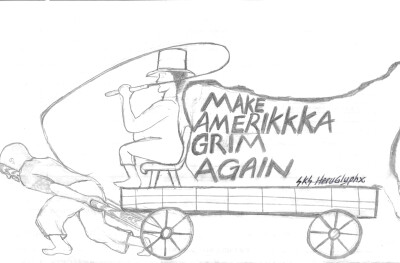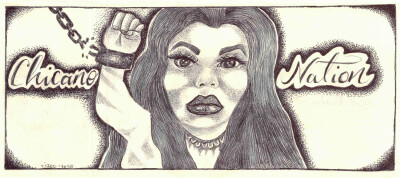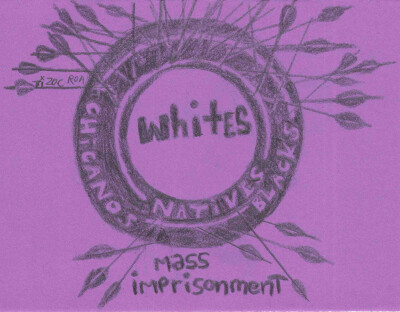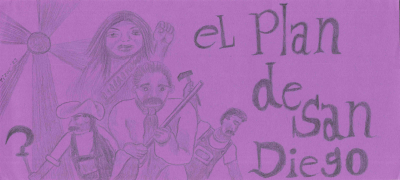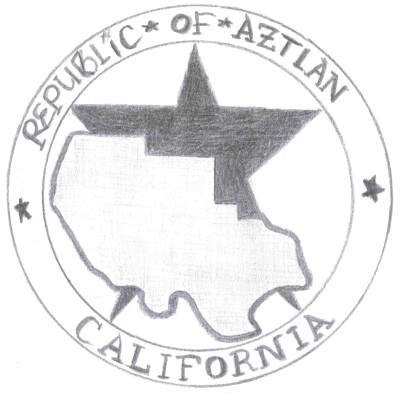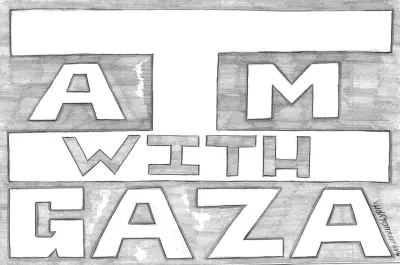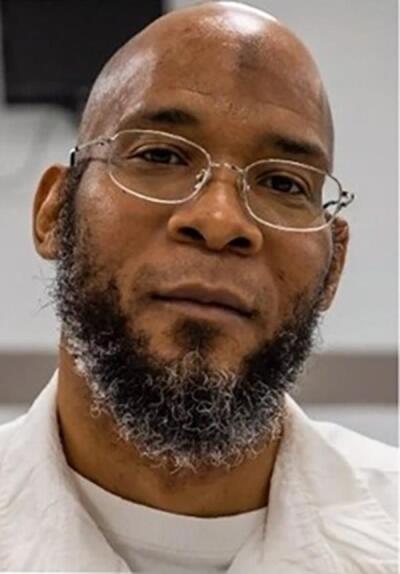
Against Settler Revisionism: Freedom Road Socialist Organization
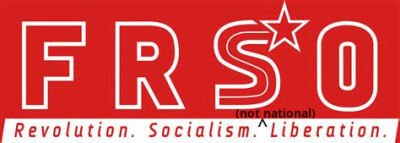
In December 2024, the Freedom Road Socialist Organization (FRSO) published an article by J Sykes titled “Marxism-Leninism and the theory of settler-colonialism in the United States”(1), which repeats many of the same errors that appear in eir July 2022 article (2) arguing against Sakai’s thesis in Settlers that the white Amerikan working class constitutes a petty-bourgeois labor aristocracy.
While Sykes does not present any particularly new or interesting points about settler-colonialism or the imperialist country labor aristocracy, ey does present us with an opportunity to dissect revisionist arguments and identify the underlying theoretical errors that lead our opponents to take up an enemy line on this question. Our focus will therefore be on exposing how the FRSO line on this particular question is a reflection of their general tendency toward idealist dogmatism and metaphysical reasoning. We will see how this national chauvinist line on the Euro-Amerikan working class is connected to their enthusiastic support of revisionists like Deng Xiaoping and the bourgeois counterrevolution that restored capitalism in China.
Although it is perhaps not immediately obvious, both of these incorrect ideas arise from how they misunderstand the fundamental contradiction of capitalism in general and conflating it with the principal contradiction in particular.
General Remarks on Terminology
Before getting started, a quick note on terminology is in order. The words “white”, “settler”, “Amerikan”, and “Euro-Amerikan” will be used interchangeably here unless otherwise noted. The term “Euro-Amerikan” (often just shortened to “Amerikan”) is the most specific and precise term to use for the First World imperialist country oppressor nation. This is preferred over more colloquial terms like “white” (an unscientific “racial” category) and “settler” (potentially ambiguous) when referring to a specific oppressor nation in a particular historical context.
For readers who are not yet very familiar with Marxist terminology in general, MIM’s Glossary of Marxism-Leninism-Maoism is a useful resource that is available online and can be provided to prisoners for free upon request.
It is also worth mentioning that while the MIM line on the white working class was significantly influenced by Sakai’s work in Settlers, our analysis has generally focused on the labor aristocratic (rather than settler-colonial) nature of the Euro-Amerikan working class. This is because the emergence of a labor aristocracy in the advanced countries is a general feature of imperialism rather than a particular consequence of settler-colonialism. Sakai’s detailed historical investigation on how the Amerikan working class became a labor aristocracy under concrete conditions provides us with enough information to theorize about the entire First World in general. While there are unique contradictions in nations that developed in a historical context of settler-colonialism, we agree with Lenin and the Comintern that imperialism in general has chained entire nations to finance capital and that these oppressor nation workers have material interests that are more aligned with the continued exploitation of colonized labor-power than communism.
One may reasonably ask, then, why even bother to distinguish settler-colonialism from other forms of colonialism or imperialism? We have both practical and theoretical reasons to make this distinction. On a practical level, having a correct and rigorous understanding of settler-colonialism in a particular historical context would be critical for a revolutionary government addressing the land question and calculating reparations owed to internally colonized nations for the crimes of settlers (genocide, slavery, land theft, environmental destruction, etc). On a theoretical level, it is important because we can arrive at knowledge about the contradictions of imperialism as an abstract mode of production in general by investigating the particular contradictions governing the development of imperialism in a concrete historical setting. We will see what this means in more detail in our response to Sykes and critique of FRSO revisionism.
Responding to Sykes on Settler-Colonialism
In this section, we will quote from the Sykes’ article so it is clear to our comrades reading this in prison what exactly we are responding to here and to contrast our differences in line and method. Unless otherwise specified, all quotes in this section are from Sykes.
Sykes begins with a straightforward appraisal of Marxism:
“The purpose of Marxist analysis is so that we can know how to make revolution, so that we understand the terrain of struggle, formulate correct strategy and tactics, and identify our friends and enemies. We must understand the contradictions at work in society and unite all who can be united if we want to win. So, we need to be very careful and precise in that analysis.”
So far, we do not disagree. We will see, however, that nobody at FRSO is apparently up to the task of actually performing this analysis or correctly identifying any of the glaring theoretical errors that immediately follow.
Having paid lip service to dialectical materialism, Sykes proceeds to abandon it completely in eir analysis of U.$. class structure and idealist proposition that the principal contradiction in the United $tates is “between the capitalist class on the one hand, and the multinational working class and its allies on the other, particularly the oppressed nations.”
If FRSO had any “theorists” who had bothered to actually understand Marx’s work or the categories laid out by Mao in On Contradiction, they would know the fundamental contradiction is between the forces of production and the relations of production. This contradiction is the driving force of hystory. The class struggle is a reflection of this contradiction under a particular mode of production in a concrete hystorical context where class divisions exist. The class struggle is not equivalent to the fundamental contradiction. The fundamental contradiction existed in primitive communal societies and will also exist in an advanced communist society, since any humyn society will have forces of production (labor-power, natural resources, tools/machines) and collectivized ownership is a form of production relations. Class struggle is resolved through the abolition of class distinctions under communism. The fundamental contradiction would still exist, but it would no longer reproduce the conditions for class antagonism. These are totally separate concepts that describe different things. The distinctions may seem subtle but it is important for communists to get it right, otherwise we risk saying nonsense and taking up enemy positions, which is precisely our charge against FRSO here. This confused and distorted use of terminology is in fact a load-bearing pillar of Sykes’ argument, the theoretical core of an old and rotten line.
Sykes acknowledges the existence of national oppression in some vague sense and admits that Amerika “began as a settler colonial project, founded on the genocide of Native Americans and the enslavement of Africans”, but rarely identifies the oppressor nation in any concrete terms. This is what Maoists call “one-sided thinking”, which completely fixates on one aspect of a contradiction while ignoring the whole. We cannot have national oppression without an oppressor nation, just as we cannot replace the oppressor nation with the monopoly capitalist, no matter how convenient it would be if we could.
Sykes continues by dressing up this ahistorical idealism as if it actually has anything to do with Marxism:
“While it is true that the legacy of settler-colonialism in the United States certainly persists, the systems of oppression have not remained static. Dialectical materialism understands that the nature of a thing is defined by the contradictions inherent to it. Things aren’t fixed, but always changing and developing according to these contradictions.”
What is the difference between “the legacy of settler-colonialism” persisting into the present and actually being a settler-colony? This is the kind of language games revisionists use to vacillate on a question rather than take a clear, coherent and principled position. They know it would be absurd to claim that national oppression has ended in the United $tates, but they also want to argue that class struggle is the principal contradiction, so they do this sleight-of-hand that places the white Amerikan working class at the center of national liberation struggles by saying it is the same thing now as the class struggle. It is how they present ideas they presume, or perhaps wish, to be true as if they are material facts. It is how they smuggle the reactionary petty-bourgeois class interests of the Euro-Amerikan oppressor nation into the international communist movement and to divert resources from national liberation struggles that could actually develop the principal contradiction and deliver serious blows to imperialism. This is a counterrevolutionary line that runs contrary to the interests of the proletariat.
Without providing any evidence or concrete reasoning for it, Sykes claims that “different contradictions have taken the principal, determining role” throughout U.$. hystory. The national question has always been the principal contradiction in the United $tates. This analysis so far is just a long, meandering way to argue that Amerika is not a majority exploiter oppressor nation. It is also a strange, even absurd, claim to make after admitting that the United $tates was founded on slavery and genocide from the very outset.
Those of us who live in reality know that the contradiction of national oppression cannot be resolved without national liberation. The FRSO position seems to be that the national question was subsumed by the class struggle in the United $tates at some point in hystory. This is reductionist and ahystorical.
We are finally offered something resembling a thesis on what settler-colonialism is and the role it played in U.$. hystory:
“U.S. settler-colonialism is a particular social formation with a particular set of contradictions at the heart of it. Historically it is a transitionary period in the early development of the capitalist mode of production. It is characterized by the dominant role played by the contradiction between settlers on the one hand and colonized people on the other. This contradiction is the main thing shaping the trajectory of the capitalist mode of production in the period of “primitive accumulation” during its nascent development. In this way, settler-colonialism fueled the rapid growth of the capitalist mode of production in the early United States.”
There is a concrete, material claim being made here without any evidence provided to support it. The definition of settler-colonialism as being a “transitory period” is dogmatic as it is self-serving to Sykes’ argument.
Sykes mentions that class divisions existed among the settlers, many of whom were indentured servants or otherwise indebted. This is presumably meant to suggest that only the upper echelons of the settler population drew material benefits from colonialism. However, even the lowest strata of the white settlers who originally came to the colonies as indentured servants were eventually able to pay off their debts and become land owners in the early 1700s. From the very earliest days of colonization, the Euro-Amerikan oppressor nation considered access to land and upward mobility reserved to itself.(3) Meanwhile, well after the U.$. Civil War that nominally ended slavery (1865), white settlers continued to struggle to keep land promised by the government out of New Afrikan hands and expanded their land grab from First Nations.
Sykes claims that “this transitional settler-colonial period had to give way to mature competitive capitalism, bringing forth new contradictions”, suggesting that the contradictions of settler-colonialism were resolved in the United $tates by “two bourgeois revolutions, the War of Independence which overthrew the British colonial system and the Civil War, which overthrew the slave system of the Southern planter class.”
It would be more correct to say that the particular contradictions of settler colonialism had a profound (and continuing) influence on the development of capitalism and imperialism in the United $tates. If these particular contradictions (between settlers and the colonized masses) did in fact simply “give way” to the fundamental contradiction of capitalism (between the bourgeoisie and the proletariat), then how do we explain the material fact that national oppression still exists in occupied Turtle Island today? Sykes would like us to believe the Euro-Amerikan oppressor nation was simply replaced by the “monopoly capitalists” at some point, conveniently resolving the contradictions between settlers and the colonized masses. Note that this again conflates the contradiction of nation with the contradiction of production. We cannot simply substitute the capitalist class with the oppressor nation and call it a day. That is not how dialectical reason works. Sykes is resorting to metaphysics to defend an idealist proposition by arguing backwards from the white chauvinist presumption that national liberation is not the principal struggle for communists to focus on today.
Amerikan independence from Britain did not fundamentally change the class structure or relations of production in the Euro-Amerikan settler colony. The economic base and ideological superstructure that developed in Amerika remain inseparable from the genocidal land theft and exploitation of slave labor that remained at the very foundation of settler life. Whether a settler colony achieved independence from its host country or not is an irrelevant detail, what matters is the class structure that develops. Kanada never had a war for independence and is still to this day a subject of the British monarchy. This did not impede the development of capitalism in Kanada and the impact of any lingering “feudal remnants” is limited to the realm of superficial things such as street names, anthems and portraits on bank notes. While the aristocratic classes in Europe certainly enjoyed the spoils of colonial exploitation, it was settlers at the front lines who directly engaged in the plunder and genocide.
The Civil War did have a more significant impact on the class structure and property relations in the United $tates, chiefly by resulting in the abolition of chattel slavery and eventually giving limited neocolonial status (e.g. voting rights, property rights) to New Afrikans. This did not resolve the contradictions of national oppression, although it did transform external conditions such that the struggle for national liberation entered a distinctly new phase of development. According to Sakai, there were two distinct conflicts playing out in the Amerikan Civil War. The first “was between two settler nations for ownership of the Afrikan colony – and ultimately for ownership of the continental Empire” and the second was “the protracted struggle for liberation by the colonized Afrikan Nation in the South.”(4) It should also be noted that the abolition of slavery did not come from the class consciousness of white workers, nor did it engender among them any meaningful or lasting sense of solidarity with Afrikan labor.
On the contrary, white workers began to form organizations like the National Labor Union (NLU) to protect their jobs and wages from being in free competition with Afrikan workers. Groups like the KKK functioned as the paramilitary wing of this reactionary class interest. The abrupt end of Black Reconstruction in the southern United $tates and the institution of Jim Crow laws is proof that the reactionary nature of the Amerikan oppressor nation precluded revolutionary “multinational” class solidarity. The NLU (the first major federation of white labor unions, similar to the AFL-CIO today) is an instructive example on this point. As Sakai pointed out, “when the National Labor Union was formed in 1866, most of its members and leaders clearly intended to simply push aside Afrikan labor” and that a major point of contention among the white workers expressed in the first meeting was over “how the capitalists had used Afrikan workers to get around strikes and demands for higher wages by white workmen” and that the most “advanced” white workers argued for taking Afrikan workers into the NLU as a means of “driving them out of the labor market”.(5)
Similarly, it was not the monopoly bourgeoisie who organized pogroms against Chinese workers, forcing entire villages out of their homes at gunpoint – it was white workers acting in their own class interest. The bourgeoisie were generally quite content to exploit Chinese labor, which is why the white workers took it upon themselves to violently attack Chinese workers throughout the west coast and form reactionary anti-Chinese organizations such as the “Workingmen’s Party of California” and to support policies like the Chinese Exclusion Act.
The most significant historical event responsible for consolidating the contemporary class structure in Amerika was World War II, where the United $tates emerged as the hegemonic imperialist world power and was consequently able to expand and intensify exploitation of the Third World to such an extent that the entire white Euro-Amerikan oppressor nation could be subsidized with plundered wealth from abroad. Suburbs became the new frontier homesteads on stolen land. While the rest of the world was recovering from a horrifically destructive war, the United $tates was able to leverage its military and economic advantages to become wealthier than ever. This allowed the United $tates to further shift the burdens of capitalist exploitation to the Third World and further consolidate the Amerikan labor aristocracy as loyal subjects of imperialism.
Sykes attempts to excuse all of eir ahystorical idealism by digging up a quote, presented with no citation or context, where Lenin described the U.$. War for Independence as “one of those great, really liberating, really revolutionary wars of which there have been so few”. Sykes also invokes a similar “famous” quote from Mao, who said that “In the final analysis, national struggle is a matter of class struggle. Among the whites in the United States, it is only the reactionary ruling circles that oppress the black people.”
Just because a great revolutionary like Lenin or Mao said something does not make it true or above scrutiny. Mao was being unscientific in making this assessment, which should be criticized regardless of the context. Like all ideas, the national chauvinism of white workers has a material basis in concrete social relations that developed in a particular hystorical context. Lenin’s remark appears in the context of a letter to U.$. workers in the early days of Soviet power and should be understood as more of a diplomatic gesture intended to garner political support for the Soviet Union rather than as a scientific statement about Amerikan hystory. It was also perhaps not so clear in Lenin’s time that the entire Euro-Amerikan nation was so firmly in the enemy camp, although even in March 1919 the Comintern was focusing their attention on struggling against the Second International and labor aristocracy by putting out statements like this:
“At the expense of the plundered colonial peoples capital corrupted its wage slaves, created a community of interest between the exploited and the exploiters as against the oppressed colonies – the yellow, black and red colonial peoples – and chained the European and American working class to the imperialist ‘fatherland’.”(6)
For an in-depth review of the how Lenin and the Comintern actually viewed the imperialist country oppressor nation working class, see Lessons from the Comintern: Continuities in Method and Theory, Changes in Theory and Conditions from MIM Theory 10.
Interestingly, Sykes admits that the United $tates does “solve its growing crises through the oppression of whole nations and peoples…in order to extract superprofits to prop up its rotten system” but then draws an erroneous conclusion that “the multinational working class and the liberation movements of oppressed nationalities [have] a common enemy – the monopoly capitalist class.”
This term “multinational working class” is used frequently in attempts to smuggle in oppressor nation chauvinism to allegedly Marxist politics! They simply cannot imagine a socialist revolution happening unless it has a white majority. This idea that a united front that includes white workers as a class is “necessary” to defeat imperialism comes from an idealist and national chauvinist assessment of the actual balance of forces. They assume pandering to white workers must be a strategic necessity and invent a political line that fits that assumption. However, hystory shows that most Amerikans will sooner rush to the defense of empire rather than struggle for the overthrow of a system that places them in materially privileged position in the global class structure.
We can draw a parallel between FRSO urging the national liberation struggles to unite with the white working class and the NLU urging New Afrikan workers to join their unions as a means to ensure the class position of New Afrikans remains subordinate to the interests of oppressor nation labor aristocracy parasitism. The practical ramification of the FRSO line would divert resources from the internal semi-colonies struggle against imperialism into pushing for the economic demands of First World parasitism. This holds back the communist movement and serves the imperialists. Hence, it is not merely wrong, it is an enemy position!
Sykes claims that a “real revolutionary movement” in the United $tates “must have working class leadership” and since “the working class…is fundamentally multinational in character” any revolutionary movement that doesn’t assume the necessity of settler leadership is based on “wishful thinking” and doomed to failure. This provides us with a good example of postmodern idealism, which rejects the scientific method and dialectical materialism by reifying subjective individual experience as the foundation for a theory of knowledge. In this context, the term “working class” seems to be understood as more of a vague cultural identifier rather than an objective material relationship to production. Sykes concludes that even though capitalism places some (unspecified and abstract) “greater pressure” on oppressed nation workers, their “white siblings” have a shared class interest because they are exploited by the “same bosses” and “the higher rate of exploitation in the oppressed nations drives down living standards for the entire multinational working class.”
If whites are exploited the same as everybody else, then why do they own more property and control more wealth than oppressed nations within U.$. borders? Why are oppressed nations incarcerated at such staggeringly higher rates than white Amerikans? How can we say that national oppression even exists if white workers are truly suffering the same oppression at the hands of the “bosses and landlords” as everybody else and that it is only the “monopoly capitalist class who reaps the superprofits from national opression”?
MIM has written and distributed volumes of literature showing precisely how the oppressor nation “workers” materially benefit from imperialism in general and how white Amerikans benefit from the oppression of internally colonized nations. This “monopoly capitalist” class has bought off the entire Euro-Amerikan nation with plundered wealth and rewarded them with preferential treatment in everything from home ownership, access to higher education, employment in higher paying white-collar professions and every other aspect of life in bourgeois society. This is not only about buying off the loyalty of white workers, it is also a practical necessity to have a large non-productive working class to oversee administration of the empire in exchange for access to a share of the surplus value produced by colonized labor power, allowing the imperialist country petty bourgeoisie and labor aristocracy to consume far beyond their own productive means. This is how imperialism maximizes the realization of surplus value as profit and reproduces a class structure where entire nations are chained to the interests of capital.
Sykes argues this basic realization about imperialism comes from “petty bourgeois ideas about the backwardness…of the working class”, rather than a concrete analysis of concrete conditions, and that it reflects a “pessimistic and defeatist attitude” toward the “revolutionary potential of the [imperialist country] working class”, rather than strategic confidence in the international proletariat.
The real “pessimistic and defeatist” line is Sykes’, who seems to believe that 220 million Euro-Amerikans have a decisive role to play in the movement to liberate 8 billion people from exploitation. If the international proletariat has to wait for a majority of Amerikkkans to wake up and join the revolutionary struggle against oppression, then it is indeed a bleak situation. Thankfully, we know that is not the case and have strategic confidence in the masses. It is neither necessary nor expedient for the proletariat to tail the left wing of white nationalism.
We should at least credit the FRSO for not calling their position “Maoist”, even though they do claim to uphold the Chinese revolution and dogmatically quote from Mao’s works. We can also credit Sykes with coming up with the new argument that a desire to “copy and paste an analysis of the Palestinian struggle onto U.S. conditions” is why communists consider the United $tates to be a settler colony. This absurd claim does not deserve a serious response, but at least it is something we have not heard before!
Having squeezed all that we can out of the idealist metaphysics lurking beneath the FRSO brand of revisionism on the labor aristocracy, national liberation and the principal contradiction, we will now discuss how this fits in with their revisionist line on the restoration of capitalism in China.
Theory of Productive Forces
It is generally the case in hystory that the forces of production constitute the principal aspect of the fundamental contradiction and that changes to the relations of production primarily follow as a consequence of changes in the forces of production. For example, the rise of technology like the steam engine and mechanized agriculture (forces of production) had a transformative effect on the class structure of feudal societies (relations of production). This led to the emergence of new social classes (namely, the bourgeoisie and proletariat) with a revolutionary interest in overthrowing feudal aristocracy and building industrial capitalism.
Deng Xiaoping’s “theory of productive forces” essentially claims that a similar development in the forces of production was necessary to transform the relations of production in socialist China. The revisionist coup that began in 1976 implemented policies that replaced socialist economic planning with a return to capitalist price speculation and market incentives, opened up Chinese industry to foreign investment, and forcibly shut down collectivized farms in favor of private agriculture and family ownership. Maoists view this as a bourgeois counterattack on the masses in China, who had achieved great victories in constructing socialism and mobilizing hundreds of millions to engage in ideological struggle and serve the people.
During the Great Proletarian Cultural Revolution, Mao led the masses of China to show how it is possible (under certain circumstances) for the relations of production to become the principal aspect of the fundamental contradiction and consequently transform the forces of production. This approach to constructing socialism requires mass mobilization and sharp ideological struggle, such that the whole of society is engaged in consciously revolutionizing the relations of production. In practice, this means industrial and agricultural development is oriented toward meeting humyn needs (rather than profits) and ideological struggle against “bourgeois right” (the idea that some people deserve to have more than others due the nature of their work, their social position, etc) was heavily emphasized and continually advanced. This is why Maoists uphold the Cultural Revolution as the greatest advance towards communism thus far in history. This is also why we view a return to NEP-style economic policies, the dissolution of collectivized agriculture and the reification of bourgeois right as counterrevolutionary.(7)
Criticize Settler Revisionism! Criticize Deng Xiaoping!
FRSO has basically the same line as their predecessor organization, the League of Revolutionary Struggle (LRS), in supporting Deng Xiaoping, the arrest and imprisonment of the “Gang of Four”, and the end of the Great Proletarian Cultural Revolution (GPCR). They defended this counterrevolution in China on the grounds of empricism and bourgeois individualist lifestyle fixations about the Gang of Four. See MIM’s 1999 congress resolution Repudiate sub-reformism; fight revisionism! for a more detailed polemic against the LRS and FRSO on this topic.
We are not surprised(8) to see an organization that still upholds Deng’s counterrevolutionary theory of productive forces consider the Euro-Amerikan working class as being part of the proletarian camp. Trotskyists make a similar error in how they understand the fundamental contradiction in the context of imperialism by obfuscating the nature of superprofits to support their chauvinist view that imperialist country workers are actually the most exploited in the world. Both of these revisionist errors are rooted in a one-sided view of contradiction and a dogmatic belief that First World wages are higher because the class struggle has advanced so much due to the more developed productive forces in advanced capitalist countries. In reality, imperialist country workers are able to live far beyond their own productive means by receiving wages many times higher than the actual value of labor-power and entire nations are subsidized by exploitation of the Third World proletariat. The imperialist country oppressor nation is an enemy class that cannot be relied upon to advance the struggle for communism.
For a recent critique of organizations nominally supporting the GPCR, but still promoting “working class unity” in the United $tates, see A Polemic against Settler “Maoism” by the Dawnland Group.
Notes:
1. J.
Sykes, _Marxism-Leninism and the theory of settler-colonialism in the
United States
2. J. Sykes, Red Theory: Against Sakai on
settler colonialism and the national question in the U.S.
3.
J. Sakai, Settlers: The Mythology of the White Proletariat from
Mayflower to Modern, Fourth Edition, pp. 21 - 22
4. Ibid.,
pp. 88-89
5. Ibid., pp. 99-100
6. Jane Degras, The Communist
International: 1919-1943 Documents, Vol. I, p.18
7. The New
Economic Policy (NEP) was implemented in the early days of socialist
Russia to transform backward economic conditions. It made use of
capitalist profit incentives.
8. MIM Theory 10, Coming to Grips
with the Labor Aristocracy, p. 28








